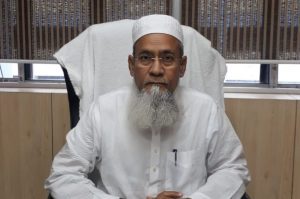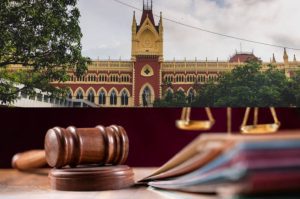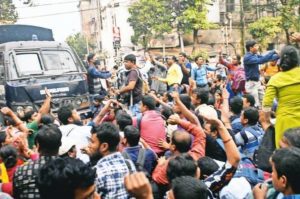In recent weeks, West Bengal has been gripped by widespread unrest as protests intensify against the controversial Waqf (Amendment) Bill, 2025, introduced by the central government. What began as peaceful demonstrations organized by various Muslim organizations and clerics has quickly snowballed into a volatile political and social flashpoint across several districts of the state. The bill, which proposes significant changes to the administration and governance of Waqf properties, has been vehemently opposed by community leaders who argue that it infringes upon religious rights and undermines the federal structure by attempting to centralize control over Muslim charitable endowments.
Violence Breaks Out During Protests Against Waqf (Amendment) Bill, 2025
The protests, which were initially confined to rallies, marches, and sit-ins, have unfortunately taken a violent turn in several parts of the state. In places like East Midnapore, Howrah, and even parts of Kolkata, demonstrators have clashed with police, leading to a series of disturbing incidents involving arson, stone-pelting, and the destruction of public property. Multiple vehicles—including police cars—have been set ablaze, roads have been blocked, and reports of injuries to both protestors and law enforcement personnel have surfaced. Videos of these clashes have gone viral on social media, further inflaming public sentiment and raising concerns about law and order in the state.
The situation has drawn strong reactions from political leaders and civil society alike. While the ruling Trinamool Congress has expressed sympathy with the protestors’ concerns, opposition parties have criticized the state government for failing to prevent the violence. The protests have also sparked a wider debate on religious rights, constitutional autonomy, and the limits of state intervention in community matters. As tensions continue to simmer, the state remains on high alert, with police presence beefed up in sensitive areas and the Calcutta High Court closely monitoring developments to prevent further escalation.
On November 28, 2024, the political landscape of West Bengal witnessed a pivotal moment when the West Bengal Jamiat-e-Ulama, one of the most influential Muslim organizations in the state, led a massive protest march in the heart of Kolkata. Thousands of people gathered in a peaceful but determined show of strength, voicing their deep opposition to the Waqf (Amendment) Bill, 2024. Organized under the leadership of Maulana Siddiqullah Chowdhury, a senior cleric and former minister in the West Bengal government, the demonstration was marked by fiery speeches, placards bearing slogans like “Save the Constitution” and “Withdraw the Waqf Bill,” and widespread public participation from various districts.
Maulana Siddiqullah Chowdhury, who addressed the rally amid heavy police presence, did not mince words. He denounced the central government’s move, calling the bill an outright “attack on the Constitution” and a direct infringement upon the religious and cultural rights of the Muslim community. According to Chowdhury, the proposed amendments are not only unconstitutional but also designed to strip state Waqf boards of their autonomy, allowing the central government to tighten its grip over community-managed properties and affairs. He demanded that the bill be rolled back immediately, warning that continued disregard for minority voices could lead to greater unrest.


The protest also drew support from West Bengal Chief Minister Mamata Banerjee, who has consistently positioned herself as a defender of secularism and minority rights. In a strongly worded statement, Banerjee echoed the concerns raised by the protesters and labeled the Waqf (Amendment) Bill as “anti-federal” and “arbitrary.” She criticized the central government for bypassing states while drafting the bill, accusing it of attempting to dismantle India’s federal structure by centralizing control over matters traditionally managed at the state level. “Waqf properties are a state subject under the current federal arrangement,” she stated, “and any unilateral changes to that structure without proper consultation with the states is not only undemocratic but also legally questionable.”
The protest on November 28 served as a major flashpoint in the growing discontent over the bill and symbolized the broader tensions between the state and the Centre. It not only amplified Muslim voices in the ongoing debate but also reignited discussions around the role of federalism, the autonomy of religious institutions, and the responsibilities of a pluralistic democracy to accommodate diverse viewpoints.
In a deeply disturbing development that further underscored the growing communal and political tensions surrounding the Waqf (Amendment) Bill, violence broke out in Kanthi (Contai), located in the East Midnapore district of West Bengal, on December 14, 2024. What began as a protest rally against the bill took a violent turn when a group of individuals allegedly attacked a car that was passing by the area while playing Hindu devotional songs at high volume. Eyewitnesses claimed that the vehicle, which was adorned with religious symbols and playing bhajans on loudspeakers, was perceived as provocative by some protesters, leading to an unprovoked and aggressive assault.
According to reports, the assailants pelted the car with stones and physically assaulted its occupants, resulting in serious injuries to those inside, including women and an elderly man. The vehicle was severely vandalized, with broken windows, dents, and religious paraphernalia torn or desecrated. The injured victims were rushed to a nearby hospital in critical condition, and videos of the attack began circulating widely on social media shortly thereafter, sparking outrage among netizens and political leaders alike.
The incident immediately became a flashpoint in the ongoing controversy, with opposition parties seizing the moment to launch a scathing attack on the Trinamool Congress-led state government. Leaders from the BJP and other opposition groups accused the ruling administration of indulging in “blatant minority appeasement” and failing to protect innocent civilians from mob violence. BJP spokespersons described the attack as an “act of communal intolerance” and demanded swift action against the perpetrators, as well as a judicial inquiry into the incident.
Local residents expressed shock and fear following the violence, stating that such incidents threaten the fragile communal harmony in the region. Many questioned how a peaceful protest escalated to such brutality and demanded tighter law enforcement and impartial justice. Meanwhile, law enforcement agencies confirmed that several individuals were detained in connection with the assault, and an investigation was underway to identify all those involved. The police also increased patrolling in sensitive areas of East Midnapore to prevent any retaliatory violence or flare-ups.
This incident added fuel to the already volatile debate surrounding the Waqf (Amendment) Bill, reinforcing the perception that the state was failing to maintain law and order amidst politically and communally charged protests. It also highlighted the urgent need for responsible leadership and interfaith dialogue to ensure that democratic dissent does not spiral into sectarian violence.
The Calcutta High Court has taken serious cognizance of the increasingly violent nature of the protests erupting across West Bengal in response to the Waqf (Amendment) Bill, 2024. In a significant judicial intervention on December 3, 2024, Justice Tirthankar Ghosh addressed the matter while hearing a public interest litigation that raised concerns over the large-scale destruction of public property and repeated clashes between protestors and law enforcement personnel. The court expressed grave concern over the disturbing trend of peaceful demonstrations morphing into violent outbursts, resulting in injuries, arson, vandalism, and loss of government infrastructure.


Justice Ghosh, in his stern observations, remarked that while the right to protest is a fundamental aspect of democratic expression, such a right must be exercised responsibly and within the boundaries of the law. He warned that if the current trajectory of violence and lawlessness continues, the judiciary may be compelled to impose strict regulations and conditions on the organization and conduct of public protests. The court emphasized that it cannot remain a mute spectator while state resources are destroyed, police personnel are assaulted, and the general public is left vulnerable due to unchecked mob behavior.
He further noted that these acts of aggression were not merely spontaneous expressions of dissent, but in many cases, appeared to be orchestrated attempts to attract attention, provoke confrontation, and escalate tensions for political mileage. Justice Ghosh underlined that public streets and properties are not battlegrounds, and the right to dissent does not include the right to endanger lives or disrupt public order.
This judicial stance has added another dimension to the ongoing discourse surrounding the Waqf Bill protests. It reflects the growing frustration within the legal system over the inability of the executive and law enforcement agencies to prevent repeated outbreaks of violence. It also signals a possible tightening of legal norms governing mass gatherings, particularly when such events have the potential to threaten communal harmony and civic peace.
These developments underscore the complex and escalating crisis gripping West Bengal. As protests become increasingly confrontational, the state’s law enforcement machinery and judicial system find themselves under mounting pressure to safeguard democratic rights while simultaneously ensuring public safety. The Calcutta High Court’s remarks serve as a reminder that while democracy thrives on debate and dissent, it cannot survive in an atmosphere of chaos and violence.
DO FOLLOW:
Also read: Home | Channel 6 Network – Latest News, Breaking Updates: Politics, Business, Tech & More


